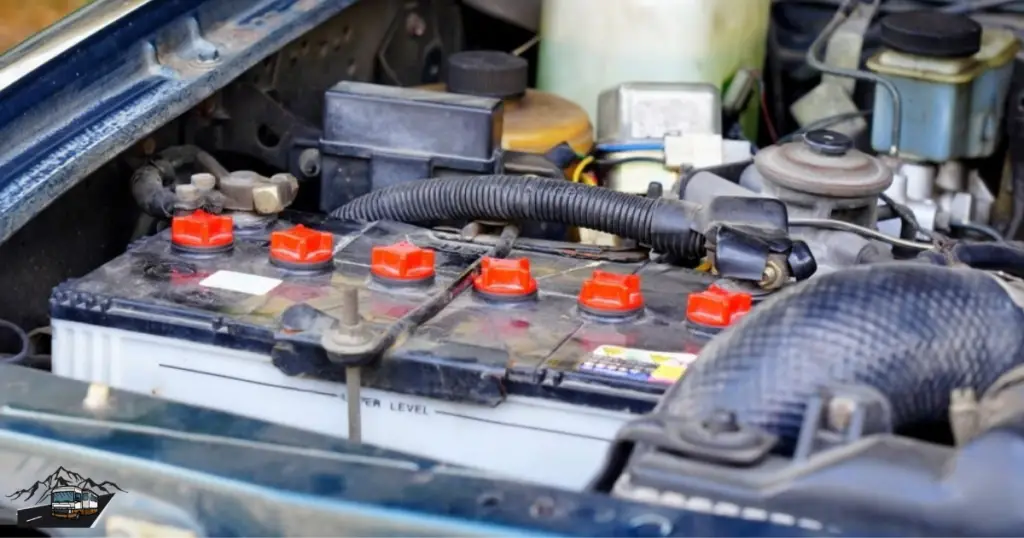Are you an avid RVer looking to improve your on-the-road experience? If so, you’ve probably heard about the hype surrounding lithium batteries. These cutting-edge power sources are changing the way RVers think about energy storage, promising longer life, lighter weight, and greater efficiency. But the big question remains: Can a lithium battery replace your standard RV battery? In this article, we’ll look into the exciting world of RV battery upgrades and determine whether switching to a lithium battery is the best option for you.
The Lithium Battery Revolution: Why the Hype?
For a good reason, lithium batteries have revolutionized the world of energy storage. Unlike traditional lead-acid batteries found in RVs, lithium batteries have several significant advantages:
1. Longer Life:
Lithium batteries outlast their lead-acid counterparts by a wide margin. A lithium battery can withstand hundreds, if not thousands, of charge and discharge cycles with proper care and maintenance, ensuring years of dependable service.
2. Higher Energy Density:
When it comes to energy density, lithium batteries are unrivaled. This means you’ll get more power in a smaller, lighter package, freeing up valuable space in your RV and lowering the overall weight.
3. Faster Charging:
One of the most intriguing aspects of lithium batteries is their ability to charge much faster than traditional batteries. This means spending less time waiting for your batteries to charge and more time enjoying your adventures.
4. Depth of Discharge:
Unlike lead-acid batteries, which can suffer from reduced lifespan if discharged deeply on a regular basis, lithium batteries can typically be released to a lower level without causing significant damage.
Making the Transition: What to Consider
There are a few important factors to consider before diving headfirst into the world of lithium batteries:
1. Compatibility:
It is critical to ensure that the electrical system in your RV is compatible with lithium batteries. Most modern RVs are built to work with both lead-acid and lithium batteries, but older models may require modifications to safely accommodate lithium batteries’ different charging and discharging characteristics.
2. Cost Investment:
While lithium batteries have numerous advantages, they do have a higher initial cost than traditional batteries. However, it is critical to consider the long-term savings, improved performance, and extended lifespan that lithium batteries can provide in addition to the initial cost.
3. Charging Infrastructure:
Because lithium batteries require specific charging profiles, your RV’s charging system may need to be upgraded. Consult with RV electrical system experts or professionals to ensure you have the proper infrastructure in place.
4. Weight:
One of the most significant advantages of lithium batteries is their light weight. If you want to reduce the weight of your RV, switching to lithium batteries can help with fuel efficiency and overall handling.
Steps to Replace Your RV Battery with a Lithium Battery
If you’ve decided that upgrading to a lithium battery is the right move for you, here’s a step-by-step guide to help you through the process:
1. Research and Consultation:
Start by researching different lithium battery brands and models. Consult with RV experts or professionals who have experience with battery upgrades. Their insights can help you make an informed decision based on your specific RV model and energy needs.
2. Prepare Your RV:
Ensure your RV’s electrical system is compatible with lithium batteries. This might involve modifications or adjustments to charging controllers, inverters, and wiring. Working with an experienced technician can streamline this process.
3. Choose the Right Battery:
Select a lithium battery that aligns with your power requirements and available space. Consider factors such as capacity, voltage, and physical dimensions to ensure a seamless fit.
4. Installation:
Follow the manufacturer’s instructions for installing the new lithium battery. Pay close attention to wiring connections, safety precautions, and any additional components required for proper integration.
5. Update Charging System:
If necessary, update your RV’s charging system to accommodate lithium batteries. This could involve installing a lithium-specific charger or adjusting settings on existing charging equipment.
6. Test and Monitor:
After installation, thoroughly test the new lithium battery setup. Monitor its performance, charging rates, and overall behavior to ensure everything is functioning as expected.
The Future of RV Power: Embracing Innovation
As the RV industry evolves, adopting innovative technologies such as lithium batteries can significantly improve your travel experience. The combination of longer battery life, increased energy density, and faster charging can take your adventures to new heights. While replacing your RV battery with a lithium battery requires careful consideration, the potential benefits make it an exciting avenue to investigate.
Finally, the question “Can I replace my RV battery with a lithium battery?” opens up a whole new world of exciting possibilities. Lithium batteries provide numerous benefits that can transform the way you power your RV, resulting in increased efficiency, convenience, and enjoyment on the road. Remember to conduct thorough research, consult with experts, and carefully plan the transition as you embark on this journey of energy storage innovation to ensure a smooth and successful upgrade. Prepare to enter a new era of RV power, powered by cutting-edge lithium technology.
So, are you ready to embark on an adventure into the future of RV energy storage? The road awaits, and the power is literally in your hands!



